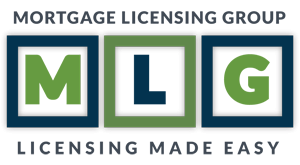Mortgage Broker Licensing: Continuing Education, Why My State of Licensure Matters?
 The process of getting and maintaining a mortgage broker license can be a very different experience for many individuals, depending upon where they live and, more importantly, where they choose to work. Most mortgage brokers operated in only one state, although some have licensure in multiple states.
The process of getting and maintaining a mortgage broker license can be a very different experience for many individuals, depending upon where they live and, more importantly, where they choose to work. Most mortgage brokers operated in only one state, although some have licensure in multiple states.
Despite the variances across the states, there is also some uniformity in regard to continuing education. The Secure and Fair Enforcement for Mortgage Licensing Act of 2008, or SAFE Act, requires that all mortgage broker originators complete annual continuing education requirements. In order to meet the criteria outlined by the SAFE Act, all state-licensed mortgage loan brokers must complete at least:
- Three hours of continuing education related to applicable federal law and regulations.
- Two hours of ethics training that includes instruction about fair lending practices, fraud, and consumer protection.
- Two hours of education related to lending standards for the nontraditional product market.
- One hour of continuing education on mortgage origination.
- Mortgage brokers applying for renewal are prohibited from taking the same course in successive years.
Why Does it Matter What State I’m Licensed In?
While the SAFE Act requires that NMLS approve the courses required for continuing education and initial licensure, state law dictates the actual requirements for continuing education. Due to this, licensed mortgage brokers should contact their state agencies to determine the specific criteria for meeting the continuing education requirements.
Some states are known for their stringent licensure requirements, while others are more lenient. For instance, many states, including Arizona, Colorado, and California, require only the minimum total of 8 hours of continuing education to maintain licensure, while the state of New Jersey has the most stringent requirement, needing 12 hours of continuing education annually.
In addition to these variances, many states impose a state-specific mandate on some of the material. This mandate means that a portion of the total educational requirements from the state must include content about applicable state laws, regulations, or standards. Twenty-five agencies require state-specific continuing education as a part of the total overall required hours to meet the requirements of the SAFE Act or as additional hours above and beyond what the SAFE Act defines.
How Do I Determine What My State Requirements Are?
Determining what your state requirements are can be a challenge. Usually, each state has a designated agency that is responsible for determining the requirements, criteria, due dates, time frames, and what type of continuing education is acceptable. Unless you are checking directly with material published by this agency, you may run into conflicting – and sometimes outdated – information about the licensure, renewal, and continuing education requirements.
If you are uncertain about who sets the continuing education criteria within your state, you can reference the NMLS State-Specific Education Requirements, which contains information about the agency responsible for continuing education within each state.
Do the Deadlines vary by state?
No, the deadline for completing continuing education requirements is uniform on December 31st of every year. Late CE courses have been designed by NMLS to meet the requirements of the CE so that upon completion, the course-taker can be retroactive credit applied to the appropriate previous year.
NMLS validates that both federal and state agency requirements are met at the time of a renewal submission. Renewals may be blocked if the individual does not meet the continuing education requirements. Late CE can only be taken during the annual reinstatement period. These credits are applied to fulfill the continuing education requirements for only the previous year and cannot be used to meet the current year’s requirements.
What will occur if I fail to meet the continuing education requirements?
If a licensed mortgage broker fails to meet his or her continuing education, they must first complete this CE requirement as a condition for renewal or reinstatement. The best way to ensure that your license is maintained uninterrupted is by planning early in the year for the courses that you must take to meet any applicable federal or state regulations. Once you have identified the courses you need, you can sign up for them from an approved provider.
Planning and completing these courses early is always the best course of action for mortgage brokers during their license renewal process. It provides for additional time to address any misunderstandings if you failed to take the correct course to fulfill a specific requirement. This extra time may be necessary if there are errors in communicating the fulfillment of this requirement to NMLS.

